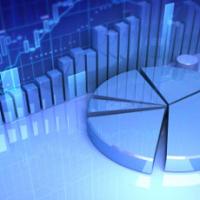What Exactly Is Big Data?

A colleague recently asked me a question regarding what I thought about big data. I answered the question by saying that big data is just large amounts of unmanageable data.
Looking back, my answer was right and wrong at the same time. I was right in saying big data is made up of large amounts of data, but I was wrong in saying that it’s unmanageable. Big data has to be managed and analyzed.
Wikipedia defines big data as “a collection of data sets so large and complex that it becomes difficult to process using on-hand database management tools." One thing the information age has brought us is lots of information and lots of ways to collect it.
An article on CNN.com links big data to the ability to keep customers. All those questionnaires we fill out as customers, whether online or through mail-in-cards, is collected and analyzed in an attempt to mine customer information so companies can find ways to make you want to return and buy more.
Another article on telegram.com points out that as of 2010, Wal-Mart, love it or hate it, had more than 2,500 terabytes worth of data, which the company uses to find out what customers want. For example, Wal-Mart found that when a hurricane approaches, “people buy more beer and strawberry Pop-Tarts.” Before Hurricane Isaac hit this year, Wal-Mart employees rushed beer and Pop-Tarts to the stores in its path.
Another article on Forbes.com dives deeper into the minds of consumers. The article describes how companies can use big data as a way to further reduce costs by making a sufficient variety of products that customers will buy. The New York Times calls this the “Age of Big Data.” The August NY Times article delves into the way the term came about and how some of big data’s earlier detractors are now its biggest proponents.
Where does this leave us as consumers of goods and providers of data? I think the best answer comes from this Huffington Post piece. After reading this, I was scared out my wits by the possibility of what big data could do—or be used to do—and I was hopeful that maybe some good could come out of the possibilities that gathering this data might bring us.

